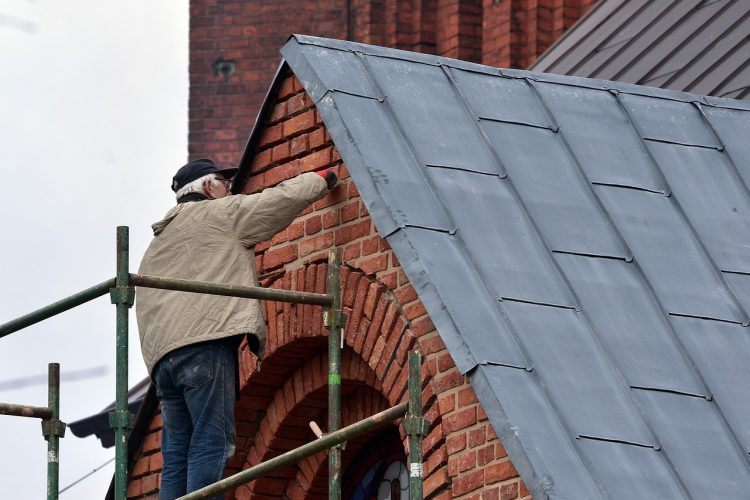Home renovations are an exciting opportunity to personalize your space, improve functionality, and increase property value. When embarking on a renovation project, one of the most critical decisions you’ll face is whether to take the do-it-yourself (DIY) route or hire professionals. Each approach has its pros and cons, and the right choice largely depends on the scope of the project, your skills, budget, and time constraints. This article will help you navigate the decision by outlining what you need to know when considering DIY versus professional renovations.
1. Understanding Your Skillset and Comfort Level
One of the biggest determining factors in choosing between DIY and professional renovation is your personal skillset. DIY renovations can be fulfilling if you are handy and enjoy tackling new projects. However, certain renovations, such as electrical wiring or plumbing, require specialized skills, and attempting them without experience can be dangerous.
Before deciding on DIY, take an honest assessment of your abilities. Can you safely handle power tools? Do you understand the nuances of home construction codes and requirements? DIY projects can range from simple tasks like painting or replacing cabinet hardware to more complicated projects like installing flooring or building a deck. If your skills match the task, a DIY renovation might be a great option. But if you’re uncertain about your abilities, hiring a professional can save time, frustration, and possibly money in the long run.
2. Budget Considerations
Another important factor is your budget. DIY renovations are often appealing because they can help you save money on labor costs. Labor can make up 20-40% of a renovation budget, so by doing the work yourself, you may be able to complete projects at a lower cost. However, savings are only possible if you avoid making costly mistakes along the way.
Hiring a professional can be more expensive upfront, but it comes with a level of assurance that the work will be done correctly. Mistakes made during DIY renovations can lead to increased costs if you have to bring in a professional to correct them. Additionally, professionals can sometimes obtain discounts on materials, which can help balance the costs. Budgeting wisely means understanding the potential pitfalls of DIY projects and being honest about what you can afford, both in terms of time and money.
3. Time Commitment
Time is a valuable resource, and it’s another key consideration when choosing between DIY and professional renovations. DIY renovations can be incredibly time-consuming, especially if you have a full-time job or other responsibilities. Projects that seem straightforward at first can take weeks or months to complete, depending on your availability and skill level.
If your renovation project is time-sensitive—for example, if you’re preparing your home for sale or need to move in by a certain date—hiring professionals might be the best option. A professional crew is experienced in managing and completing projects efficiently, and they can generally complete work faster than an inexperienced DIYer.
4. Safety and Complexity of the Project
Safety should always be a priority in any renovation project. Some renovations, particularly those involving electrical work, gas lines, or structural changes, can be hazardous if not done correctly. Tasks like rewiring, handling power tools, and working at heights require not only technical skills but also strict adherence to safety protocols.
When assessing the safety aspect of a project, it’s wise to err on the side of caution. Projects that involve high risks should be left to professionals who have the necessary training and equipment. For example, knocking down a wall to create an open floor plan might seem like a manageable project, but if the wall is load-bearing, it’s essential to consult a structural engineer. In contrast, simpler projects like painting or building shelves can be safe and satisfying for a DIY enthusiast.
5. The Value of Hiring Professionals
While DIY can be gratifying, hiring a professional comes with distinct advantages. Professionals bring expertise, experience, and the ability to troubleshoot problems that may arise. A licensed contractor can ensure that work is completed up to code, which is especially important if you plan to sell your home in the future.
Professionals are also useful for design consultation. A renovation is not just about construction; it’s also about creating a cohesive design that works functionally and aesthetically. Architects and interior designers can provide insights and creative solutions that you may not have thought of. This can add significant value to your home and make the renovation process smoother.
Another benefit of hiring professionals is the warranty or guarantee that often comes with their work. If something goes wrong after the renovation, you have recourse to get it fixed. DIY projects, on the other hand, place the responsibility solely on you, and any mistakes or damages are yours to address.
6. Pros and Cons of DIY Renovations
Pros of DIY Renovations:
- Cost Savings: By eliminating labor costs, you can complete projects at a reduced cost, provided you avoid mistakes.
- Sense of Accomplishment: Completing a DIY project can be immensely rewarding and provide a great sense of achievement.
- Flexibility: You can work on the project at your own pace and adjust your plans as you go.
Cons of DIY Renovations:
- Skill Limitations: If you lack the required skills, you could make mistakes that turn out to be costly.
- Time-Consuming: DIY projects often take longer than anticipated, especially if they require skills you’re still developing.
- Potential Safety Risks: Certain tasks, like electrical work or major structural modifications, carry safety risks if not done correctly.
7. Pros and Cons of Hiring Professionals
Pros of Hiring Professionals:
- Expertise and Efficiency: Professionals bring years of experience, ensuring a higher quality result completed within a predictable timeframe.
- Access to Tools and Materials: Contractors come with their own tools and often have access to quality materials at discounted rates.
- Warranties and Guarantees: Many contractors offer guarantees for their work, giving you peace of mind that issues will be addressed.
Cons of Hiring Professionals:
- Higher Cost: Professional renovations come at a higher cost due to labor fees, but this may be a worthwhile investment depending on the project.
- Less Control: You might have less hands-on control compared to a DIY project, and communication is key to ensure your vision is understood.
8. Mixing DIY and Professional Services
Another option to consider is a hybrid approach, where you take on parts of the renovation yourself and leave the more complex tasks to professionals. This approach can allow you to save on labor costs without compromising safety or quality.
For instance, you might choose to handle the demolition or painting while hiring an electrician or plumber for more specialized work. A hybrid approach offers the best of both worlds—cost savings where possible, without taking on risks or jobs beyond your expertise.
9. Evaluating the Scope of Your Renovation
The scope and complexity of your renovation should heavily influence your decision. A smaller renovation, such as updating a bathroom with new tiles and paint, might be manageable as a DIY project. On the other hand, major renovations involving multiple trades (such as electricians, plumbers, and carpenters) might be best left to professionals.
Consider breaking down the renovation into smaller tasks and evaluating each one. Ask yourself whether each task aligns with your skillset, time availability, and comfort level. If any step seems overwhelming, it might be worth hiring a professional for that portion of the work.
10. Considering Long-Term Impact and Resale Value
When deciding between DIY and hiring a professional, it’s essential to consider the long-term impact of your decision. Poorly executed DIY renovations can lower the value of your home or necessitate costly corrections in the future. Buyers are often wary of DIY renovations that show signs of amateur workmanship, and this can affect your resale value.
On the other hand, professionally executed renovations can increase the value of your home, especially if they are done with high-quality materials and adhere to building codes. Consider consulting with a real estate professional to understand which renovations are likely to add value in your local market.
Making the Final Decision
Choosing between DIY and professional renovation ultimately comes down to balancing time, cost, safety, and skill. If you enjoy hands-on projects and have the necessary skills, DIY can be a fulfilling and cost-effective choice for smaller renovations. However, for larger, more complex projects, the expertise of professionals can be invaluable.
Whichever path you choose, preparation is key. Research thoroughly, be honest about your abilities, and don’t be afraid to ask for help when needed. Home renovations are a significant investment, and making the right decision early on can save time, money, and stress while ensuring your home becomes the space you’ve always dreamed of.




















